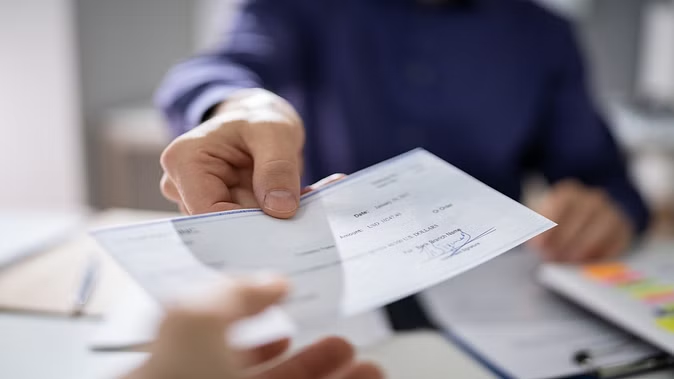You must have a bank account. Because today almost everyone has a bank account. Some have zero balance accounts, some have salary accounts, some have savings or current accounts, etc. After opening a bank account, you get an ATM, so that you can withdraw money whenever you want as per your need. Apart from this, the account holder also gets a checkbook, with the help of which he can make payments to anyone, but if you use a cheque, then you should pay special attention to some things, one of which is the bounce of the cheque. Can one face jail if the check bounces? You can know the answers to such questions further. So let us know what are the rules of check bounce. You can know about this in the next slides...

What is the rule of check bounce?
If a check bounces, you have to inform the person giving the money or the debtor. In such a situation, that person has to pay you within a month. Besides, the charge for check bounce is also deducted from the bank account of the person giving the cheque.
If for some reason you do not pay the money to the debtor within a month, you can be given a legal notice to which you have to respond within 15 days. If you do not do this, a case can be filed against you under Section 138 of the Negotiable Instrument Act 1881.
There is also a provision for punishment
If your check has bounced and a case is registered against you for this, then you can be fined. Apart from this, you can also be jailed for up to 2 years or both. Apart from this, you also have to pay interest on the money owed.
Don't forget these things:-
If someone has given you a check for payment, it should be encashed within three months.
The validity of the check remains only for three months.
(PC: iStock)










